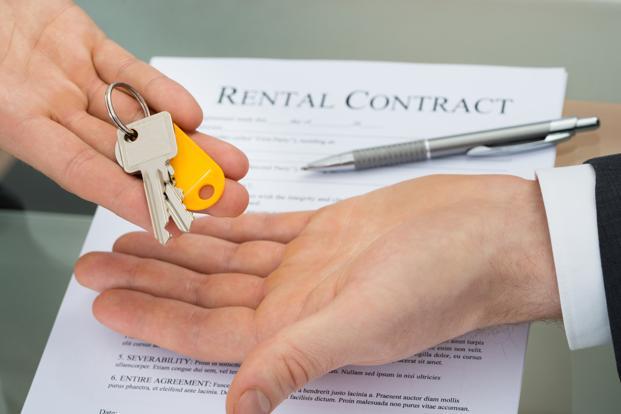Why are rental agreements mostly made for 11 months only?

Tenants must sign a rental agreement with the landlord for a predetermined time to live there on rent. Typically, 11 months is the time frame that most landlords choose to use. Have you ever questioned why these leases are just for 11 months? This is why.
If the lease is for less than a year, there is no need to register. A leasing agreement with a duration of no more than one year is not required to be registered under section 17 of the Registration Act of 1908.
This implies that leases for less than a year can be signed without registering. According to Niraj Kumar, partner at DSK Legal, “the above mentioned alternative enables the parties to skip the laborious procedure of getting the document registered before the office of the sub-registrar and making payment of the registration expenses.”
Landlords want an 11-month lease to avoid legal issues. In the event of a dispute, this could lead to a lengthy legal battle, according to BankBazaar.com’s general counsel, Soumee Bhatt.
When a lease is shorter than a year, one can avoid paying stamp duty by choosing not to register the lease, saving money in the process. Typically, to avoid having to pay such expensive costs, the landlord and the renter agree not to register the lease.
The amount of stamp duty is determined by the rent and the length of stay if one chooses to register the rental agreement. The longer the tenancy, the greater the stamp duty. Therefore, even if a rent agreement is registered, a shorter duration will help to reduce the large lump sum that would be paid in stamp duty. Therefore, as long as it helps them avoid paying a larger cost, both parties often stay on the same page.
As an alternative, a notarized rent agreement is employed.
Many people choose to get their rental agreement notarized instead of registering it. Even while it isn’t a necessity, Kumar notes that having a rent agreement notarized “helps in confirming the genuineness of the parties completing the agreement.” For this reason, a lot of folks only note the lease.
Who stands to gain more from an 11-month contract, the landlord or the tenant?
If the landlord wants to end the lease early, an 11-month lease is in the landlord’s favor. “The rent is subject to rising at the landlord’s discretion.” Additionally, landlords prefer rent agreements with shorter lease terms to prevent potential disagreements and headaches, “Kumar explains.
A non-registered agreement that is just notarized is simpler to revoke. An 11-month lease can be terminated with a simple one-month notice after 11 months. According to Bharat Chugh, a former judge and Supreme Court attorney, “an 11-month notarized lease provides the landlord additional freedom because the rent may be fixed at a market rate and can be extended regularly.” Chugh questions whether a tenant would gain more from such an arrangement.
The lessee is liable to pay the relevant stamp duty if it is not expressly stated in the lease agreement between the parties who sign it. From a financial standpoint, a renter gains more from an 11-month contract since he may avoid having to pay the necessary stamp duty and registration costs.
Acceptance in the court of a leasing agreement that has been notarized or registered
A notarized rental agreement is not admissible as evidence in court if the law otherwise demands registration. Therefore, Kumar argues, a renter cannot claim any rights under the unregistered agreement. A notarized rental agreement, however, cannot be disregarded as an unlawful document. It is currently acceptable and legal to write an 11-month notarized lease agreement.
These agreements may also be used as evidence in court if a disagreement occurs, “Bhatt says.” Such rent agreements are often drafted by a public notary using stamp paper costing Rs 100 or Rs 200. According to Bhatt, though, long-term contracts are more solid and provide both parties with greater rights and obligations.
The cons of not registering the rental agreement
In the event of a disagreement, a registered rental agreement serves as reliable proof. If there isn’t a documented rent agreement, the landlord can have a hard time getting the renter to pay for any property damage. According to Kumar, arguments over the eviction notice, lock-in time, premature termination, renewal period, etc. would result in unfavorable outcomes for parties trying to prove their rights under the rent agreement since an unregistered rent agreement is not acceptable in court.
Be it for an 11-month lease or a longer period, it is always desirable that parties must pay the necessary stamp duty on the rent agreements they seek to complete. To prevent interference with the rights and advantages of the counterpart and to establish legally binding responsibilities for both the renters and the owner, Chugh advises the parties to sign a residential rent agreement that is at least 11 months long.
reasons why long-term tenants should register.
It is preferable to use a registered rent agreement if you anticipate having a long-term tenancy. “The parties should have it recorded if they want to have a longer tenancy and connection.” “This guarantees that both parties honor their agreements and abide by the conditions of the lease,” claims Chugh.
For instance, a tenant who leases space for five years and makes a large investment on that basis should protect his rights by registering the lease. Because the contract would be deemed void by the court if not registered and notarized, the landlord may evict the renter with one month’s notice and no need to provide a reason.
edited and proofread by nikita sharma



